Industry and government experts will inspire, present updates, and discuss business opportunities that you will be able to act on.
2020 will include speakers from the NNSA, the U.S. House of Representatives, the U.S. Senate, National Laboratories, the U.S. Department of Energy, the U.S. Department of Defense, contractors, and more.
Check out the confirmed 2020 speakers here!
Everet Beckner, PhD
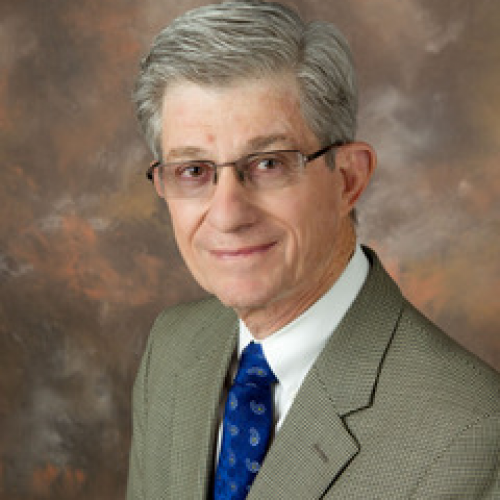
Session: The Nuclear Weapons Enterprise – Looking Back and Looking Forward
Dr. Beckner is a retired member of the U.S. Senior Executive Service and a retired Vice-President of the Lockheed Martin Corporation, with over 25 years of experience at Sandia National Laboratories as a researcher and manager, followed by over 20 years of experience in managing various aspects of the NNSA nuclear weapons program and the UK nuclear weapons program. He began his career at Sandia National Laboratories, where he spent over 27 years and rose to the position of Vice President of their Nuclear Weapons program. He then joined the Department of Energy in 1992 as the Principal Deputy Assistant Secretary of Defense Programs, where he participated in development of the program elements of the Stockpile Stewardship Program. He joined Lockheed Martin in 1996 as Vice President of Technical Operations for their Energy and Environment Sector, which at that time held M&O contracts at Sandia, ORNL, the Y-12 Plant and the INEL, in addition to clean-up contracts at the K-25 plant, the INEL and Hanford. They also had contracts to operate the uranium Enrichment Facilities at Padukah, KY and Portsmith, OH. From 2000 till 2001, he served as the Deputy Manager for the UK AWE nuclear weapons operations. In 2001, Ev returned to the US to become the Deputy Administrator for the newly-formed NNSA’s Nuclear Weapon program, serving in that capacity until his retirement in 2006. Since that time, he has been engaged in consulting activities involving the NNSA facilities and the M&O contractor operations. He is a member of the Stockpile Assessment Team of the Strategic Advisory Group of the USSTRATCOM. He is also a member of the board of directors of TechSource, Inc.
Jim Blankenhorn
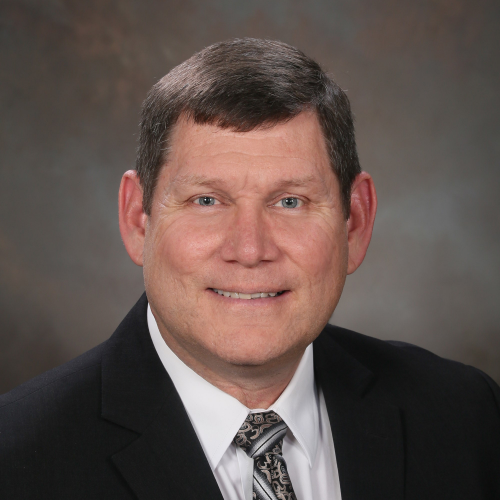
Session: Strategic Materials Missions
James A. Blankenhorn is a Senior Vice President for Operations of the Nuclear & Environment Strategic Business Unit of AECOM’s Management Services Group and is the High Level Waste and National Nuclear Security Administration Sector Lead. He oversees the organization’s day-to-day operations and strategic planning and initiatives. Jim serves on the Board of Directors for AECOM Nuclear Canadian Operations, and the Board of Managers for Savannah River Remediation, and the East Tennessee Technology Park. Jim also serves on the Lawrence Livermore National Security Board of Governors.
In his previous position, Mr. Blankenhorn was the Recovery Manager and Deputy Project Manager and Chief Operating Officer for the AECOM-led Nuclear Waste Partnership LLC at the Waste Isolation Pilot Plant (WIPP) in Carlsbad, NM.
Throughout his career, Mr. Blankenhorn has served as an officer in the U.S. Army Reserve and is currently a Brigadier General. His experience includes development, training, staffing and doctrine development for Chemical, Biological, Radiological and Nuclear Forces, National and International Consequence Management Operations, and Defense Support to Civilian Agencies. His awards include the Legion of Merit, six awards of the Meritorious Service Medal, and eight awards of the Army Commendation Medal.
He also served as the Chief Operating Officer of Perma-Fix Environmental Services, Deputy Project Manager for West Valley Environmental Services, LLC in New York, Program Director for the Waste Disposition Project at the Los Alamos National Laboratory; and various leadership positions at the Savannah River Site in South Carolina, including Management and Operations Chief Engineer, deputy Chief Engineer for material disposition, and deputy area project operations manager for the Waste Management Area Project.
William Bookless, PhD
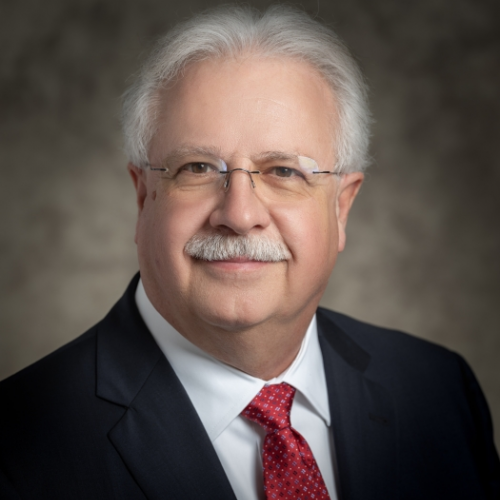
Session: NNSA: Overcoming Operational Challenges and Initiatives for the Future
Dr. William Bookless was confirmed by the U.S. Senate on May 23, 2019, as the Principal Deputy Administrator of the National Nuclear Security Administration. He brings over 35 years of experience in the Nuclear Security Enterprise to this leadership role.
As NNSA’s Principal Deputy Administrator, Dr. Bookless will support NNSA Administrator Lisa E. Gordon-Hagerty in the management and operation of the NNSA, as well as policy matters across the DOE and NNSA enterprise in support of President Trump’s nuclear security agenda. Dr. Bookless will support the full range of NNSA missions to maintain and enhance the safety, security, and effectiveness of the U.S. nuclear weapons stockpile; reduce the global danger from weapons of mass destruction; provide the U.S. Navy with safe and effective nuclear propulsion; and respond to nuclear and radiological emergencies in the United States and abroad.
Dr. Bookless spent 32 years as a senior physicist at Lawrence Livermore National Laboratory in Livermore, California, where he worked on a wide range of nuclear security topics. Among his roles were project leader for investigating the effects of pulsed, high-current electron beams and investigating the effects of X-ray lasers; deputy leader of one of LLNL’s nuclear weapons design divisions; associate program leader in the nuclear test program; and program leader for Nuclear Weapons Surety. He was the Deputy Associate Director of Defense and Nuclear Technologies and also served as Associate Director of Safety and Environmental Protection.
After his time at Livermore, Dr. Bookless served as Assistant Laboratory Director for Policy and Planning at Brookhaven National Laboratory in Brookhaven, New York, for three years. From 2009 to 2012, he served as a Senior Advisor to the NNSA Administrator for policy.
He holds a Doctorate degree in physics from the University of Wyoming and a Bachelor’s degree in physics from Southern Illinois University.
Kimberly S. Budil, PhD
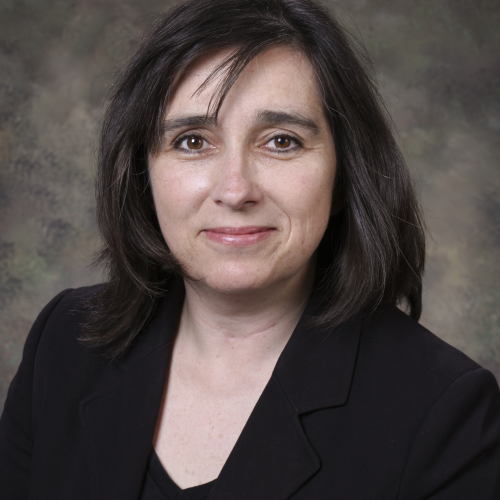
Session: NNSA Weapons Update
Kim Budil is the Principal Associate Director for Weapons and Complex Integration at Lawrence Livermore National Laboratory LLNL). She is responsible for the programs that ensure the safety, security, and effectiveness of the Nation’s nuclear deterrent and advancing the supporting science, technology, and engineering capabilities of the Stockpile Stewardship Program (SSP). Prior to this, she served as the Vice President for National Laboratories at the University of California Office of the President (UCOP) where she led the university’s oversight and governance of LLNL, Lawrence Berkeley National Laboratory (LBNL), and Los Alamos National Laboratory (LANL). She has served on many committees, including the LLNS/LANS Mission Committee and the National Academies committee on International Security and Arms Control (CISAC), and has served as a board member for the Hertz, LANL, and Livermore Lab Foundations.
Prior to joining UCOP, Budil worked for nearly three decades at LLNL. She joined LLNL in 1987 as a graduate student and held a variety of increasingly responsible positions across the Laboratory working in Weapons and Complex Integration, National Ignition Facility, Physical and Life Sciences, and Global Security. She served twice as a detailee in Washington, DC, most recently in 2009, spending nearly two years as a Senior Adviser to the Under Secretary for Science at the Department of Energy (DOE). She has M.S. and Ph.D. degrees in Applied Science/Engineering from University of California, Davis and a B.S. in Physics from the University of Illinois at Chicago. Dr. Budil also completed a certificate in National Security Affairs from the Bush School at Texas A&M University.
Thomas Conard
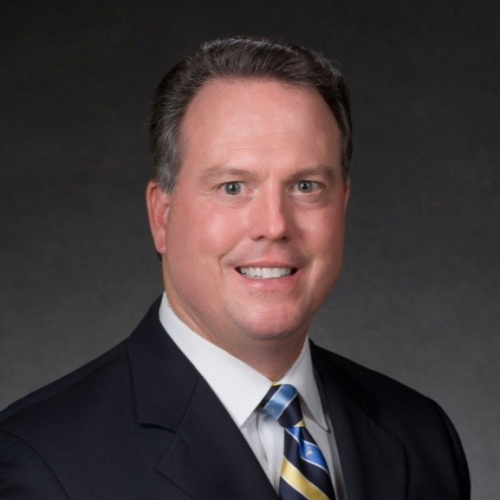
Session: Morning Plenary Session
Thomas (Tom) Conard is vice president, Missile and Weapon Systems, Global Sales and Marketing, Defense, Space & Security. He manages a sales, marketing and business development portfolio that includes the Ground-based Midcourse Defense and Missile Defense National Team programs; Strategic Deterrence Systems, including the Minuteman ICBM and Ground Based Strategic Deterrent programs; and the Cruise Missile Systems, Direct Attack and Integrated Air and Missile Defense weapons programs.
He holds a Bachelor of Science in aviation management from Embry-Riddle Aeronautical University and a Master of Business Administration. Conard has also received professional executive education at Boeing’s Leadership Center; University of Notre Dame; The Wharton School, The University of Pennsylvania; Johns Hopkins University; Wichita State University; Southern Methodist University; and the Defense Acquisition University..
Brian D'Andrea
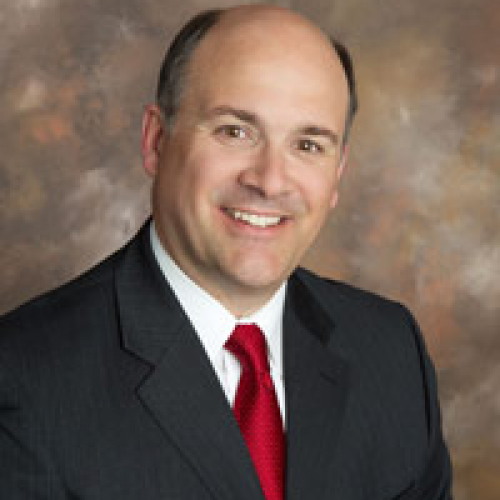
Session: NNSA Weapons Update
In 2001 Mr. d’Andrea was appointed Chief Operating Officer. He is responsible for the daily operations and marketing activities for the company as well as overseeing client relations. Brian brought decades of experience in the management and engineering disciplines to TechSource with the goal of moving the company from a regional business to a national leader. Under his direction TechSource has repeatedly received national accolades from Inc. 500 one of the fastest-growing high technology firms in the US. Regionally, TechSource has been recognized by New Mexico’s Flying 40, as one of the top 40 fastest growing high technology firms in New Mexico.
Brian possesses over 28 years’ experience of broad-based technical and managerial experience developed as a corporate executive, large business unit manager, research and development project engineer, national laboratory program analyst, corporate administrator, and a Naval Officer.
Robert DeGrasse
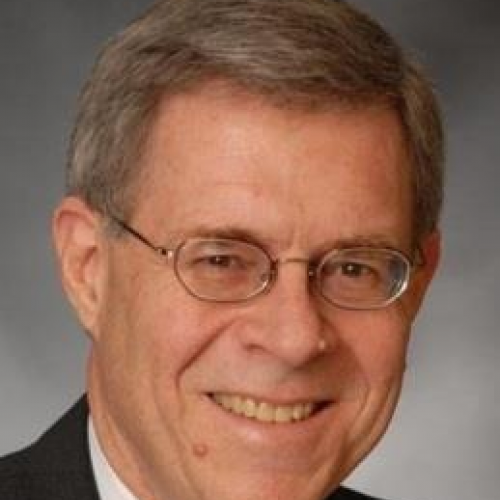
Session: Budget and Policy Update
Bob DeGrasse is Vice President and Manager for Government Affairs with Bechtel National, Inc. (BNI), a premier engineering, procurement, construction and project management services provider to the U.S. Government and its allies around the world. In his role, Mr. DeGrasse manages government relations and congressional affairs with regard to BNI’s work in nuclear and homeland security, ballistic missile defense and naval reactors. He is an Advisory Member of the Joint LANS/LLNS Board of Governors that oversees Los Alamos and Livermore National Laboratories, and Chairs the Joint Business, Operations and Security Committee for the Board. He joined BNI in January 2011.
Mr. DeGrasse brings to BNI more than 25 years of government experience, having served in various roles on Capitol Hill and with the U.S. Department of Energy (DOE). Before joining Bechtel, Mr. DeGrasse was the Staff Lead for the Strategic Forces Subcommittee of the House Armed Services Committee. He had also served as the Senior Policy Advisor to the Chairman of the House Armed Services Committee and the committee’s Deputy Staff Director.
Mr. DeGrasse’s career with DOE spanned 12 years. As acting Chief Operating Officer of the National Nuclear Security Administration (NNSA), Mr. DeGrasse assisted the agency in implementing its legislative mandate to become separately organized within DOE. Previously, Mr. DeGrasse was appointed Principal Assistant Deputy Administrator for NNSA’s Defense Programs whose responsibilities include managing the day-to-day operations of the nuclear weapons complex. Earlier, Mr. DeGrasse had directed DOE’s Office of Worker and Community Transition, helped establish the Fissile Material Disposition Program, and served as Special Assistant to the Secretary of Energy.
Mr. DeGrasse received his bachelor’s degree in history from Stanford University and his master’s degree in public administration from the John F. Kennedy School of Government at Harvard University.
Adam DeMella

Session: Budget and Policy Update
D.E. (Dori) Ellis
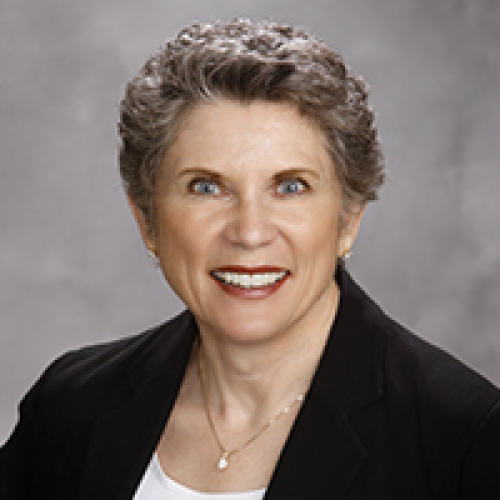
Session: Updates from National Lab Directors
As the Deputy Labs Director for Sandia National Laboratories, D. E. “Dori” Ellis provides leadership, oversight, management direction, and execution to implement the Labs Director’s strategic vision for safe, secure operations at Sandia.
Dori has an extensive career working in national security, including more than 30 years at Sandia. Dori has also served as Executive Director, National Laboratories Operations, for the University of California, Office of the President. Prior to that role, as the Associate Director at Large for the Strategic Development Office at Lawrence Livermore National Laboratory, Dori fostered a strong working relationship between the National Nuclear Security Administration and other federal agencies to expand interagency national security collaborations.
During her tenure at Sandia, Dori most recently served as Associate Labs Director for Integrated Security Solutions, providing leadership and management direction for Sandia’s California Laboratory and the Energy, Earth, and Complex Systems Center and Sandia’s Energy and Homeland Security mission portfolio; Principal Staff Director; Chief Operations Officer for Defense Systems & Assessments; and Director of the Global Security Line of Business/International Security, Transportation Surety, Nuclear Waste Management, and Nuclear Reactor Technology Centers.
Dori is a charter member of the National Women's History Museum and a member of the International Women’s Forum. She has been the U.S. representative to the International Atomic Energy Advisory Board on Nuclear Security and an advisor to the U.S. and Russian Academies of Science.
A graduate of the University of New Mexico, Dori holds bachelor's and master's degrees in mechanical engineering.
John Feddema, PhD
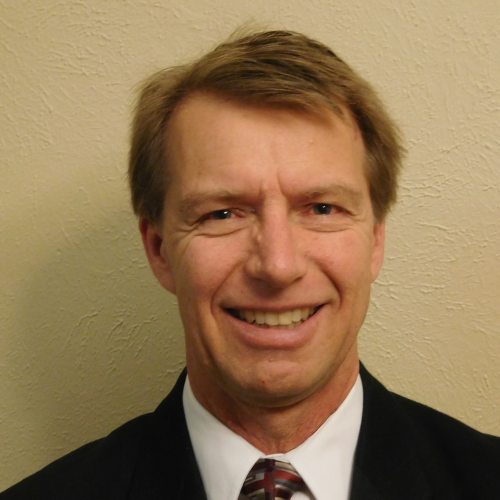
Session: Artificial Intelligence – The Science of Tomorrow is Happening Today
Dr. John Feddema is the Senior Manager of Sandia National Laboratories’ Enhanced Decision Making Group and has been at Sandia National Laboratories since 1989. His organization is responsible for artificial intelligence and machine learning, scalable analysis and visualization optimization and uncertainty quantification, discrete math and optimization, and scalable algorithms. Prior to this position, John was the manager of the Data Analysis and Exploitation Department where he was the program manager of the Advanced System Program Ground System Research portfolio, which focused on the development of new signal and image processing capabilities for current and future satellite ground systems. From 2003 to 2008, John was the manager of the Intelligent Systems Control Department where he led robotics research projects for DOE and DARPA. John has over 80 publications in journals, conference proceedings, and book chapters. He has eight patents in sway-control of cranes, hopping robots, and distributed autonomous robot control. John Feddema received his Ph.D. degree in Electrical Engineering from Purdue University in 1989.
Patty-Jane Geller

Session: Weapons Modernization Update and Concurrent Developments at Home and Abroad
Patty-Jane currently serves as the Policy Analyst for Nuclear Deterrence and Missile Defense at the Heritage Foundation. Before joining Heritage, she worked at the Senate Armed Services Committee in support of the Strategic Forces and Cybersecurity Subcommittees, where she worked to pass and have signed into law the National Defense Authorization Act for Fiscal Year 2020. Previously, she worked as a staffer for Congresswoman Elise Stefanik (NY-21). Patty-Jane holds a B.A. in Government and a minor degree in physics at Georgetown University, and an M.A. in Military Operational Art and Science from the Air Command and Staff College.
Christine Gelles
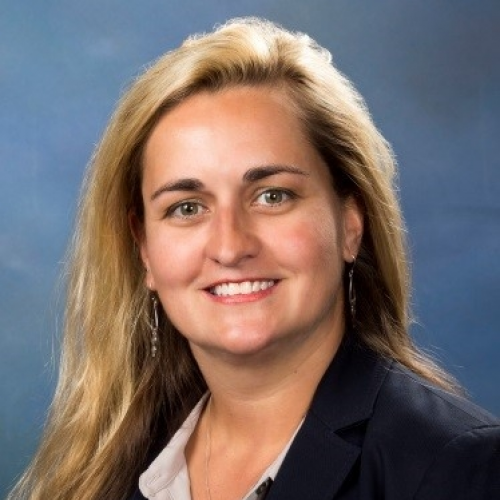
Session: Perspectives on NNSA Site Operations
Christine Gelles has nearly 25 years’ experience in the US Department of Energy. Her core skills include: strategic program planning, policy development and problem solving, project planning, management, budget formulation, execution and review; program management and assessment; comprehensive understanding of environmental laws, regulations and policies, as well as federal budgetary and accounting policy; and extensive knowledge and understanding of the Department of Energy’s waste management and nuclear materials management programs.
William (Bill) Goldstein, PhD
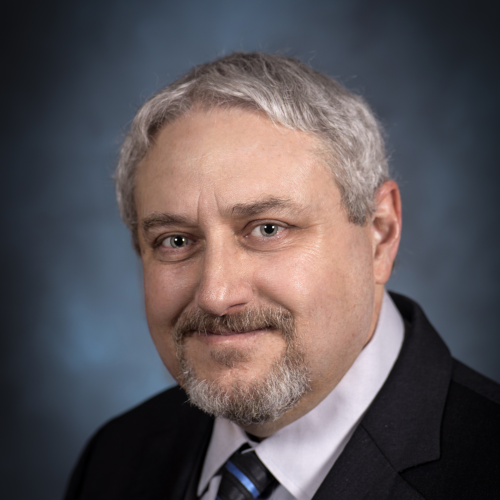
Session: Updates from National Lab Directors
Director Bill Goldstein leads LLNL’s workforce of approximately 6,800 employees and manages an annual operating budget of approximately $2.3 billion. As Laboratory Director he shares the responsibility, along with the directors of Los Alamos and Sandia National Laboratories, of providing the president, through the Secretaries of Energy and Defense, an annual institutional assessment of the state of the nuclear weapons stockpile in terms of safety, security and effectiveness, and whether confidence in the stockpile can be maintained without a nuclear test. He is committed to carrying on a tradition of scientific and technical excellence in service to the Nation.
Goldstein has more than 30 years' experience at the Laboratory, serving in a variety of managerial roles. Prior to his appointment of director he was the deputy director for Science & Technology, tasked with leading the strategic deployment of the Laboratory's science and technology capabilities, taking line responsibility for the institutional roadmap portfolio, including the Laboratory Directed Research and Development Program, collaborative research with academia and private industry, and institutional planning activities. Prior to his appointment as deputy director, Goldstein served as associate director of Physical & Life Sciences, where he had responsibility for a broad range of physics research and development; medical physics and biophysics; chemistry; optical sciences and instrumentation; and high-energy-density physics.
Dr. Goldstein became an APS Fellow in 2017 and an AAAS Fellow in 2009.
Lisa E. Gordon-Hagerty
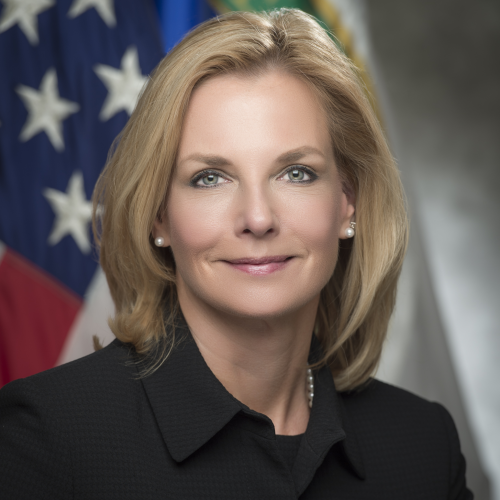
Session: Updates from National Nuclear Security Administration Leadership-LIVE FROM VIENNA!
Lisa E. Gordon-Hagerty serves as the Under Secretary for Nuclear Security of the U.S. Department of Energy (DOE) and Administrator of the National Nuclear Security Administration. She was confirmed by the U.S. Senate on Feb. 15, 2018. With more than 30 years of national security experience, Ms. Gordon-Hagerty is responsible for the management and operations of NNSA in support of President Trump’s nuclear security agenda. NNSA maintains and enhances the safety, security, and effectiveness of the U.S. nuclear weapons stockpile; works to reduce the global danger from weapons of mass destruction; provides the U.S. Navy with safe and effective nuclear propulsion; and responds to nuclear and radiological emergencies in the United States and abroad.
Ms. Gordon-Hagerty served previously in several U.S. Government leadership positions, including as the Director of Combating Terrorism, National Security Council staff. She also served at DOE as the Director, Office of Emergency Response, and as Acting Director, Office of Weapons Surety. Ms. Gordon-Hagerty was a professional staff member on the U.S. House of Representatives Committee on Energy and Commerce. She began her professional career as a health physicist at DOE’s Lawrence Livermore National Laboratory.
Prior to joining the Trump Administration, Ms. Gordon-Hagerty was president of Tier Tech International, Inc., a Service Disabled Veteran Owned Small Business providing professional expertise to combating WMD terrorism worldwide. She was also president and CEO of LEG, Inc., a consulting firm focusing on national security issues. Ms. Gordon-Hagerty served as the Executive Vice President and Chief Operating Officer of USEC, Inc.
Ms. Gordon-Hagerty holds a Master of Public Health degree in Health Physics and a Bachelor of Science, both from the University of Michigan. She is a member of the Council on Foreign Relations and the Health Physics Society.
Stephen Guidice
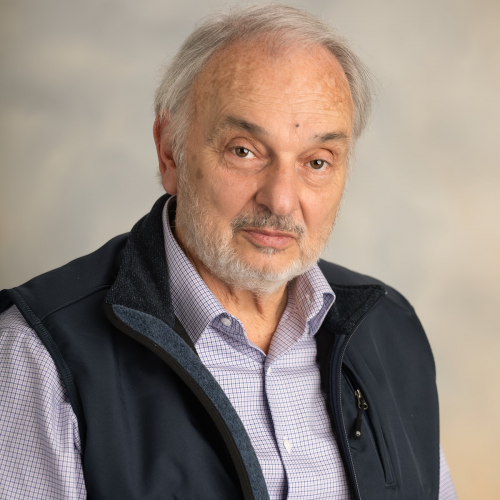
Session: End of the Cold War, End of Production, Underground Testing and the Emergence of Stockpile Stewardship
1998 - Present…Independent Advisor
Mr. Guidice has served as an independent advisor to all three DOE nuclear weapon laboratories, production plants and the test site; Department of Defense FFRDCs (IDA and MITRE); USSTRATCOM SAG/SAT; OSD Defense Science Board task forces and JASON studies; Congressional panels and commissions; large DOD/DOE programs of cooperation with US allies and the former Soviet Union; small technical service-oriented companies and public policy-oriented organizations such as the AAAS and Stimson Center.
The technical advice has been focused mainly on nuclear and nuclear weapons-related topics that range from national policy level issues to the details of nuclear weapon design, manufacture, quality assurance, surveillance, surety (safety and security), dismantlement and the predictive capabilities afforded by high performance computing.
Since Mr. Guidice has extensive experience in managing large-scale DOE operations, he has also consulted on facility construction and operations, operational safety and security, cost analysis and business case development. In addition, he has worked on selected bids for DOE M&O contracts and a UK MOD contract.
1997 - 1998…Executive Director - Project Management, Fluor Daniel Inc
Work for Fluor included nuclear facility planning at Los Alamos, technical trouble-shooting at the Hanford site and DOE plutonium disposition programs (Pit Disassembly and Conversion, MOX Fuel and Immobilization). Worked with the French firm Cogema on MOX fuel and visited three of their facilities in France.
1977 - 1997…DOE Albuquerque Operations Office (DOE/AL)
Work for the former DOE/AL included 12 years in Senior Executive Service (SES) leadership positions directing the production, quality assurance, surveillance, surety and dismantlement of all stockpile nuclear weapons. This experience included the top weapons position at DOE/AL as the Head of the Office of Operations and Weapons with a weapons budget of about a $2B/year to operate seven production plants and provide for laboratory technical support. At the end of the Cold War (circa 1992), his emphasis shifted toward the development of the Stockpile Stewardship and Management Program; planning and managing the massive US weapons dismantlement campaign; and, planning and managing the processes that led to Secretary of Energy Record of Decisions (RODs) in 1993 and 1996 on reconfiguration of portions of the DOE nuclear weapons complex.
1968 - 1977…US Navy (civilian) and Commercial Industry
Worked as a civilian in mechanical and general engineering positions in the US Navy’s nuclear weapon program and as an industrial engineer for the commercial telecommunications industry. Most of this experience was as a civilian test engineer for the US Navy in Hawaii, California and New Mexico (at Sandia Laboratories).
1963 - 1968…Rensselaer Polytechnic Institute - BS Engineering and MS Management Sciences
John R. Harvey PhD
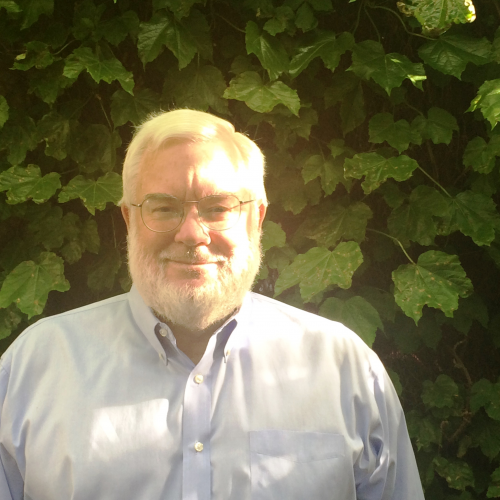
Session: Weapons Modernization Update and Concurrent Developments at Home and Abroad
Dr. John R. Harvey is a physicist with over 35 years of experience
working nuclear weapons and national security issues, first at
Lawrence Livermore National Laboratory, then at Stanford
University’s Center for International Security and Arms
Control and in senior positions in the Departments of Defense
(twice) and Energy. From 2009-2013, he served as Principal
Deputy Assistant Secretary of Defense for Nuclear, Chemical,
and Biological Defense Programs under then Undersecretary
Ash Carter. He was Dr. Carter’s “go to” person for the 2010
Nuclear Posture Review, as well as for interactions with the
Department of Energy on joint oversight of the U.S. nuclear
weapons stockpile. Dr. Harvey also provided oversight to
DoD acquisition programs to sustain and modernize nuclear
weapons delivery systems and systems for their command and
control. Since retiring from government service in 2013, he
consults with the Defense Science Board, Institute for Defense
Analysis, Los Alamos National Laboratory, National Institute
for Public Policy, Center for Strategic and International Studies
and Strategic Command’s Strategic Advisory Group Panel on
Nuclear Weapons Command and Control.
Dawne S. Hickton

Session: Updates from National Nuclear Security Administration Leadership-LIVE FROM VIENNA!
Dawne S. Hickton serves as Jacobs Executive Vice President and Chief Operating Officer of the Critical Mission Solutions line of business, and she is a member of the Executive Leadership Team for Jacobs. Additionally, Ms. Hickton oversees several corporate teams, including Federal Government Relations and International Relations.
Ms. Hickton joined Jacobs on June 3, 2019 after having served on the Jacobs Board of Directors since 2015. She has more than 30 years of diversified manufacturing experience, including more than 15 years at the executive officer level in the aerospace and defense metals industry spanning several business cycles. She is the former Vice Chair, President and Chief Executive Officer of RTI International Metals, Inc. a billion dollar, vertically-integrated global supplier of advanced titanium and specialty metals fabricated structural products that was acquired by Alcoa in July 2015, and subsequently split into a division of Arconic in 2016.
Ms. Hickton earned a Juris Doctor degree from the University of Pittsburgh School of Law and is a graduate of the University of Rochester.
David Hoagland
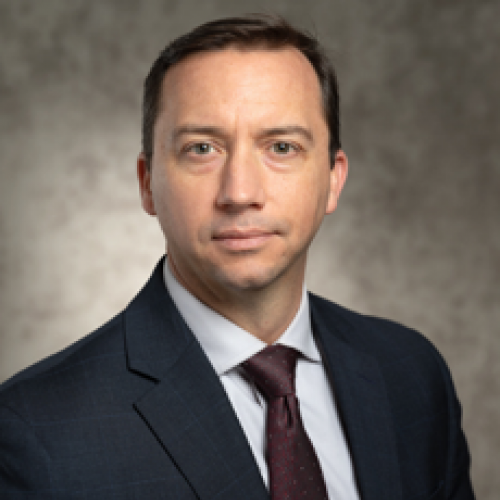
Session: Nuclear Counterterrorism and Counterproliferation
Mr. Hoagland is currently the Deputy Associate Administrator (Acting) for the Office of Counterterrorism and Counterproliferation at the National Nuclear Security Administration. In this capacity he coordinates several programs to reduce the threat from nuclear terrorism and proliferation, including developing innovative capabilities to address current and future threats.
Mr. Hoagland served on the National Security Council staff from 2014-2017 where he was responsible for developing Administration policy on issues ranging from nuclear terrorism to global nuclear proliferation, and contributed to policy on South Asia and other regional nuclear issues. Mr. Hoagland led the development of Presidential Policy Directive-33 (PPD-33), which guides whole-of-government efforts to detect and provide early warning of nuclear proliferation. He led the implementation of Administration policy on responding to threats and acts of WMD terrorism in the United States and overseas.
Prior to the NSC, Mr. Hoagland directed the Department of Energy’s specialized capabilities to search for, diagnose, stabilize, and render safe nuclear and radiological devices, and oversaw technology development for DOE, FBI, and DOD to counter nuclear terrorism and proliferation.
Mr. Hoagland served as a Naval Special Warfare Officer, including deployments to the Middle East, Europe, and the Balkan regions. He has a Bachelor of Science in Mechanical Engineering (Aerospace concentration) from Worcester Polytechnic Institute.
James R. Howe
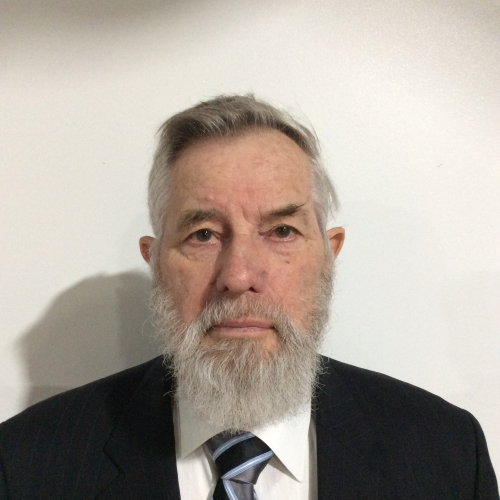
Session: Chinese Strategic Nuclear Force Posture: Current and 2035 Forecast
James R. Howe is currently Vice President, Threats, Technology, and Future Requirements for Vision Centric, Inc., a SETA to US Army Space and Missile Defense Command. From 2001-2005 he was Director, Threats and Future Requirements for Boeing, Missile Defense Division, and has over 30 year’s experience as a strategic level researcher and analyst. Researched developments and trends in advanced nuclear weapon technologies, delivery systems, space, cyber and implications for future nuclear/non-nuclear warfare.
Mr. Howe is a former US Army Armor Officer, was a nuclear weapons employment officer, and earned a MA in International Relations from University of Southern California.
Peter Huessy
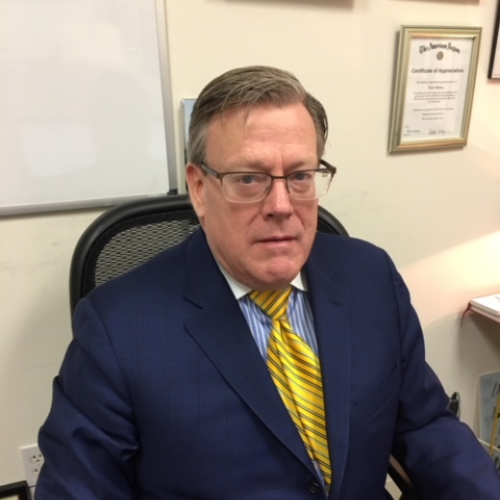
Session: Weapons Modernization Update and Concurrent Developments at Home and Abroad
Peter Huessy, since 2016 has been Director of Strategic Deterrent Studies of the Mitchell Institute, and President of GeoStrategic Analysis, founded in 1981, and previously was the senior defense consultant at the Air Force Association from 2011 and the National Defense University Foundation from 1992, and National Security Fellow at the American Foreign Policy Council and JINSA. For the past 35 years, Peter has hosted the Congressional Breakfast Seminar Series on Nuclear Deterrence and Missile Defense. He specializes in securing public and Congressional support for key defense policy initiatives. From 1981-2011, Peter helped the U.S. Air Force with strategic assessments of the threats facing the U.S. He lectures at the U.S. Naval Academy and previously has at the Prague Security Institute, the Joint Military Intelligence College, the U.S. National War College, the Johns Hopkins SAIS, the Institute of World Politics, and the University of Maryland.
Peter has served as a consultant monitoring budget and policy developments on missile defense, nuclear deterrence, terrorism and a wide range of proliferation, arms control and homeland security issues. He has written for the Hill, National Review, Breaking Defense, Human Events, Defense News, US News and World Report, the National Interest, Family Security Matters, Big Peace, Fox Forum and Gatestone Institute, and has appeared frequently on television and radio discussing key national security issues.
Dimitri Kusnezov, PhD
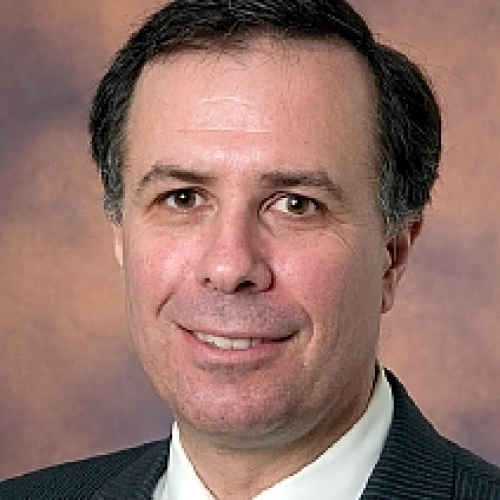
Session: Artificial Intelligence – The Science of Tomorrow is Happening Today
Dr. Dmitri Kusnezov received A.B. degrees in Physics and in Pure Mathematics with highest honors from UC Berkeley. Following a year of research at the Institut fur Kernphysik, KFA-Julich, in Germany, he attended Princeton University earning his MS in Physics and Ph.D. in Theoretical Nuclear Physics. At Michigan State University, he conducted postdoctoral research and then became an instructor.
In 1991, he joined the faculty of Yale University as an assistant professor in physics, becoming an associate professor in 1996. He has served as a visiting professor at numerous universities around the world. Dr. Kusnezov has published over 100 articles and a book.
He joined federal service at the National Nuclear Security Administration in late 2001 and is a member of the Senior Executive Service and is also a Visiting Researcher at Yale. He currently serves as Deputy Under Secretary for A.I. and Technology.
Michael Lempke
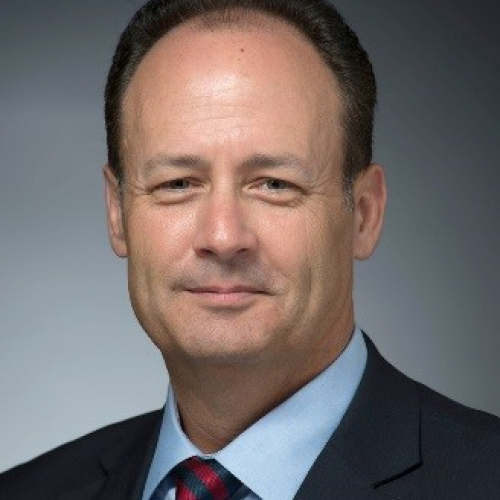
Session: Updates from Office of Defense Programs, National Nuclear Security Administration (NNSA)
Michael Lempke is president of the Nuclear and Environmental Group at Huntington Ingalls Industries’ Technical Solutions division. He is responsible for HII’s DOE work in nuclear operations; production nuclear engineering and design; project management; environmental services; site remediation and waste management; and commercial nuclear fabrication services.
Lempke previously served as a vice president of energy programs at HII’s Newport News Shipbuilding division, where he was responsible for overseeing Department of Energy programs, as well as commercial nuclear and industrial products businesses, and formulating strategy to yield new energy and inorganic growth markets.
Before joining Newport News Shipbuilding in June 2016, Lempke was a vice president at Systems Planning and Analysis, Inc., and held positions of increasing responsibility within the Department of Energy. In 2012, he was named associate principal deputy administrator for the National Nuclear Security Administration (NNSA) and the associate administrator for infrastructure and operations. Prior to that, he had a long and successful career at Naval Reactors, where he held senior executive leadership positions including manager of the Naval Reactors Laboratory Field Office, and director of Acquisitions at Naval Reactors Headquarters.
John Longenecker
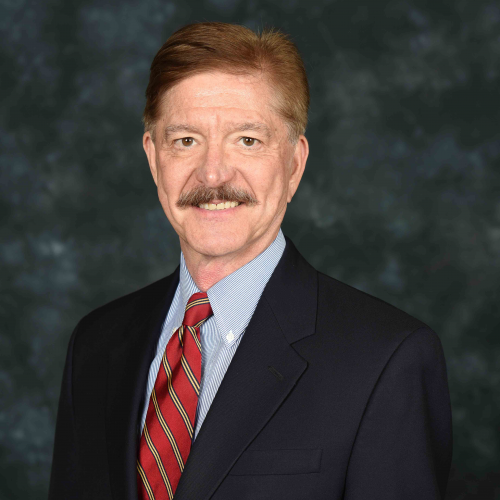
Session: Updates from National Lab Directors
John R. Longenecker, the President of Longenecker & Associates, Inc. (L&A), has more than 35 years experience in energy and national defense. L&A was founded in 1989 and is a woman-owned, Nevada-based small business, specializing in project delivery, mission assurance and business solutions to the nuclear, environmental management and defense industries.
Mr. Longenecker also serves as the Managing Director of the Energy Facility Contractors Group (EFCOG). EFCOG promotes excellence in all aspects of the operation, management, and integration of DOE facilities in a safe, environmentally sound, efficient and cost-effective manner through the ongoing exchange of information on lessons learned.
President Bush appointed Mr. Longenecker in December 1992 to serve as Transition Manager for the United States Enrichment Corporation, a government-owned, for-profit corporation that provides uranium enrichment services to electric utilities throughout the world.
From 1983 to 1987 Mr. Longenecker served in the Reagan Administration as the Deputy Assistant Secretary for Uranium Enrichment in the U.S. Department of Energy. Prior to managing the U.S. uranium enrichment enterprise, Mr. Longenecker held other management positions in DOE and its predecessor agencies, including serving from 1981 to 1983 as the Program Manager for the CRBRP Project. In this position, Mr. Longenecker was the primary interface with the NRC during the project licensing process.
Mr. Longenecker has appeared before the Congress of the United States on numerous occasions, and has presented papers in various national and international forums. Mr. Longenecker is a member of Tau Beta Pi Honorary Engineering Society, the American Nuclear Society (ANS), the University Club, the Porsche Club of America, and the Desert Sportsman Club. Mr. Longenecker serves as a member as a member of the Executive Committee and the Board of Directors of WM Symposia, a non-profit organization dedicated to providing education and information exchange on global waste management issues. L&A directly supports these efforts by providing scholarships annually to students via the Roy Post Foundation.
Mr. Longenecker is a lifetime member of the Walter Reed Society, and L&A annually provides financial support to its Wounded Warriors programs. He also is a Trustee of the Nevada Test Site Historical Foundation and a member of the Development Committee of the Las Vegas based National Atomic Testing Museum.
Mr. Longenecker received both his Bachelor of Science and Master of Science degrees, with academic honors, from the Pennsylvania State University. Mr. Longenecker was recognized in April 2006 as an Outstanding Engineering Alumnus by Penn State
Heather K. Looney
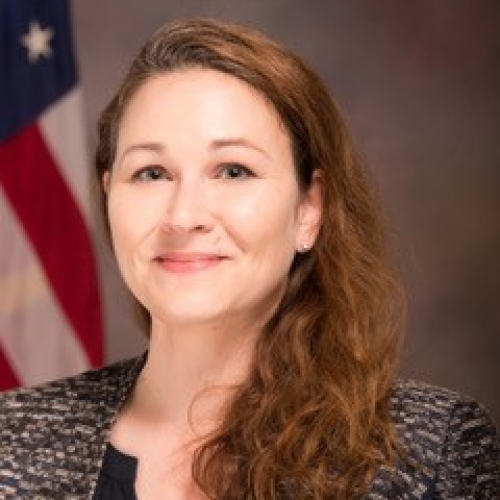
Session: Nuclear Counterterrorism and Counterproliferation
Heather K. Looney is detailed from the U.S. Department of Energy/National Nuclear Security Administration’s (DOE/NNSA) Office of Counterterrorism and Counterproliferation as a Visiting Faculty Member at the National Defense University’s College of International Security Affairs (NDU/CISA) in Washington. At NDU she teaches and lectures on the subjects of nuclear threats and responses, nuclear nonproliferation policy, and homeland security for WMD threats. Ms. Looney most recently served as the Director of the Office of Nuclear Incident Policy and Cooperation at NNSA, responsible for NNSA’s international nuclear terrorism, accident, and incident preparedness and response programs. Prior to this position, she served as the Senior Policy Advisor to the NNSA Deputy Administrator for Defense Nuclear Nonproliferation, having begun her nuclear policy career while stationed in Moscow, Russia.
Ms. Looney’s areas of specialization include nuclear nonproliferation, nuclear security, Weapons of Mass Destruction counterterrorism, and nuclear incident preparedness and response. She has served on several U.S. negotiating teams for nuclear conventions and agreements on nuclear and radiological security and is an expert on multilateral nuclear policy issues. Ms. Looney previously served as the Department of Energy’s coordinator for both the U.S.-Japan Bilateral Commission on Civil Nuclear Cooperation and the interagency Nuclear Emergency Management Working Group under Bilateral Commission auspices. She also led the establishment of the U.S.-Republic of Korea Nuclear Incident Preparedness and Response Working Group under the U.S.-ROK High Level Commission on Civil Nuclear Cooperation.
Ms. Looney holds a B.A. in International Studies from the University of South Carolina and an M.A. in Russian and Eastern European Studies from Georgetown University. She speaks Spanish and Russian.
Stuart MacVean
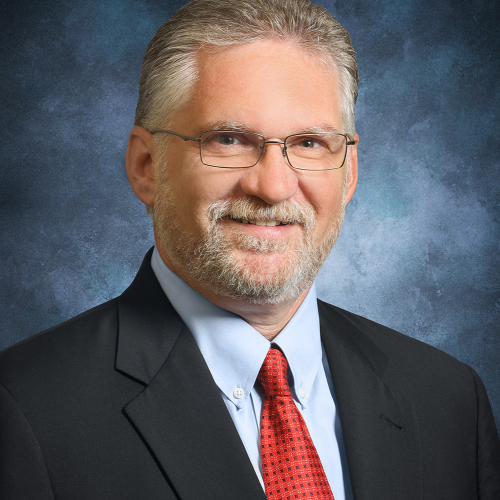
Session: Perspectives on NNSA Site Operations
Stuart MacVean is the President and Chief Executive Officer of Savannah River Nuclear Solutions,
LLC (SRNS). He is responsible to the Department of Energy (DOE) for the safe, effective and efficient
management and operations of the Savannah River Site (SRS). His responsibilities include providing
vision, leadership, mission growth, technological advancement, and a performance-based culture of
safety, security and operational excellence at the Site.
MacVean has more than 30 years of experience working in the DOE complex. Prior to joining SRNS,
MacVean served as a vice president of Operations for Fluor Government Group’s Environmental and
Nuclear business line. In this role, he provided oversight of DOE Environmental Management projects
for Fluor, including SRS, Portsmouth, Paducah, Idaho, and as a part of the Canadian National Energy
Alliance Consortium formed to restructure and manage Canada’s Nuclear Laboratories.
Prior to joining Fluor, MacVean was President and Project Manager at Savannah River Remediation LLC
(SRR), the liquid waste contractor at SRS, and a vice president at AECOM. This allowed Stuart to use
his early career experience gained at the West Valley Demonstration Project (WVDP) in Buffalo, N.Y., in
roles including management of high-level waste tank cleaning and vitrification operations, overall site
operations, and responsibility for the startup, operation and decommissioning of the WVDP vitrification
facility. While at SRR, MacVean’s responsibilities included oversight of all areas of the liquid waste
disposition program, including the removal and vitrification of high-level waste from large underground
waste storage tanks. MacVean also served as SRR Chief Operating Officer and Deputy Project
Manager, where he was instrumental in the operational closure of six SRS waste tanks.
MacVean has served as Executive Director for Spent Fuel Management at the Sellafield site in the
United Kingdom (U.K.). In this role, he was responsible for the U.K. spent fuel program, operating
the Magnox and Thorp reprocessing facilities, and the plutonium production and storage facilities.
His directorate managed the U.K.’s $1 billion per year commercial nuclear fuel receipt and recycling
program, while also managing the U.K. stockpile of more than 100 metric tons of plutonium. His
previous experience at SRS in the mid-2000s included the operations of H Canyon, HB Line, F, L and
K areas, making him uniquely qualified in the nuclear materials industry to have been responsible for
nuclear fuel receipt and recycling operations in multiple countries.
MacVean currently serves as the charter chairman of the CSRA American Heart Association Board
and a member of the Aiken Partnership Board for the University of South Carolina–Aiken. As a strong
advocate for volunteerism, he has previously served with Public Education Partners, the American
Heart Association Heart Walk executive leadership team, and the United Way of Aiken County.
Mark W. Martinez
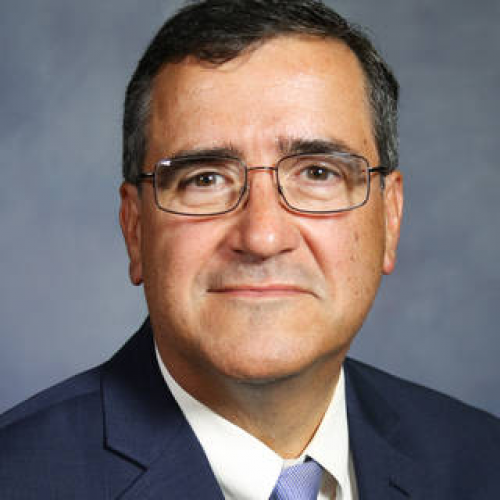
Session: Perspectives on NNSA Site Operations
As the President of Mission Support and Test Services, Mark Martinez provides leadership and management direction for the effective and efficient execution of all operations at the Nevada National Security Site and leads development of a visionary and executable strategic plan. Martinez has 30 years of experience managing complex and multidisciplinary nuclear, technical, business, operational and site services. He spent the past 23 years at Lawrence Livermore National Laboratory, most recently leading as Vice President and Principal Associate Director for Operations and Business, working to implement key strategic initiatives and operations and infrastructure improvements. While at LLNL, Martinez gained both programmatic and operational expertise through diverse assignments and developed key relationships with employees and external stakeholders. He was a senior Test Director responsible for executing LLNL experimental activities at the Nevada Test Site which encompassed comprehensive oversight of complex technical, construction, ES&H, quality assurance, security, external communications, and other management functions for large-scale projects. He also served as the Program Leader for the Nuclear Materials Technology Program, the Nevada Experiments and Operations Acting Program Leader, and the Deputy Principal Associate Director in the Weapons & Complex Integration. Martinez has a strong background leading transformations. At LLNL’s Weapons and Complex Integration, he strengthened the rigor and changed the culture to a high-performing team. In addition, NNSA requested Martinez’s leadership in leading improvements in multi-nation nuclear defense experiments in Nevada.
Thomas Mason, PhD
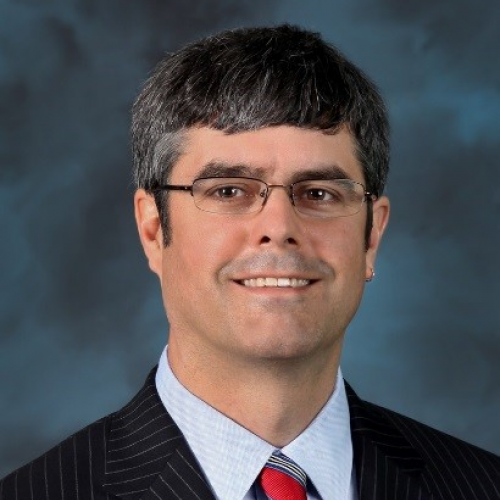
Session: Updates from National Lab Directors
Thom Mason assumed the role of President and CEO of Triad Nuclear Security, LLC on July 9, 2018, and became Director of Los Alamos National Laboratory effective November 1, 2018.
Thom joined Battelle Memorial Institute as Senior Vice President for Global Operations on July 1, 2017. He is a native of Dartmouth, Nova Scotia, Canada and graduated from Dalhousie University in Halifax, Nova Scotia, with a Bachelor of Science degree in physics. He completed his postgraduate study at McMaster University in Hamilton, Ontario, Canada, receiving a Doctor of Philosophy degree in experimental condensed matter physics.
Thom joined Oak Ridge National Laboratory (ORNL) in 1998 as Scientific Director for the U.S. Department of Energy’s Spallation Neutron Source (SNS) project. In April 2001, he was named Associate Laboratory Director for SNS and Vice President of UT-Battelle, LLC, which manages ORNL for the Department. In 2006 he became Associate Laboratory Director for Neutron Sciences and in May 2007, was named Director of ORNL and President and CEO of UT-Battelle.
After completing his Ph.D., he held a postdoctoral fellowship at AT&T Bell Laboratories in Murray Hill, New Jersey, and then became a Senior Scientist at Risø National Laboratory in Denmark. In 1993 he joined the faculty of the Department of Physics at the University of Toronto.
Thom’s research background is in the application of neutron scattering techniques to novel magnetic materials and superconductors. As former Director of the U.S. Department of Energy’s largest science and energy laboratory, he has an interest in advancing materials, neutron, nuclear, and computational science to drive innovation and technical solutions relevant to energy and global security. Thom was named a Fellow of the American Association for the Advancement of Science in 2001, a Fellow of the American Physical Society in 2007, and a Fellow of the Neutron Scattering Society of America in 2010. He received the Distinguished Alumni Award for the Sciences from McMaster University in 2008; the degree of Doctor of Laws, honoris causa, from Dalhousie University in 2011; the degree of Doctor of Science, honoris causa, from McMaster University in 2013; and the degree of Doctor of Science, honoris causa, from the University of Tennessee in 2016.
James J. McConnell
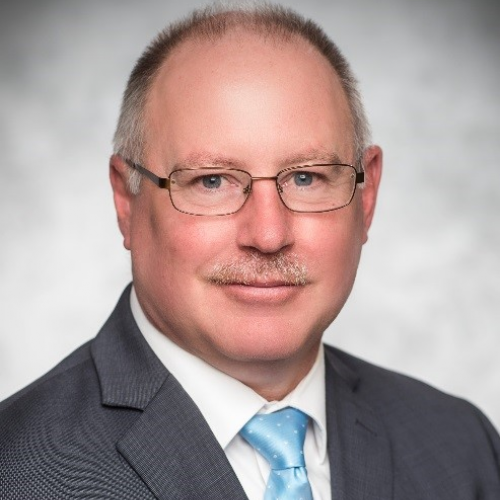
Session: Support the Mission: NNSA Administrator’s Governance and Management Framework
Mr. McConnell is the NNSA Associate Administrator for Safety, Infrastructure, and Operations. He is responsible for safety, infrastructure, packaging, nuclear materials integration and sustainment & environmental programs. He is also the NNSA Central Technical Authority responsible for overall safety policy and interpretation throughout NNSA.
Previously, he held several positions within NNSA’s Office of Defense Programs including Associate Deputy Administrator for Infrastructure & Operations. He was the first Chief of Defense Nuclear Safety for NNSA. Mr. McConnell also held several senior positions at the Defense Nuclear Facilities Safety Board including Deputy Technical Director.
A former U.S. Navy submarine officer, he holds a bachelor’s degree in electrical engineering from the Naval Academy and two master’s degrees in engineering.
Megan Milam

Session: Support the Mission: NNSA Administrator’s Governance and Management Framework
Megan Milam is Director of the Office of Policy and Strategic Planning at National Nuclear Security Administration. In this role, she oversees strategic planning and policy on crosscutting issues that arise across the nuclear security enterprise.
Prior to that, she was most recently the Deputy Comptroller of Budget and Appropriations Affairs (BAA) at the Department of Defense in the Office of the Under Secretary of Defense (Comptroller). In this role, she served as the senior advisor to the Secretary of Defense on congressional appropriations and as the lead interface between Department of Defense (DoD) senior leadership and the congressional defense appropriations committees on congressional defense appropriations matters.
Prior to becoming the Director of BAA, Ms. Milam was a professional staff member for the House Appropriations Committee, Subcommittee on Defense where she oversaw funding and policies related to the Department of Defense and Intelligence Community. She also worked for Congressman Mike Simpson (ID-02) as his Appropriations Associate overseeing all funding and policy matters related to the Appropriations Committee.
Ms. Milam received her Masters of Science degree in International and European Politics from the University of Edinburgh in Edinburgh, Scotland, and her Bachelor of Arts degree from Princeton University.
Tim Morrison
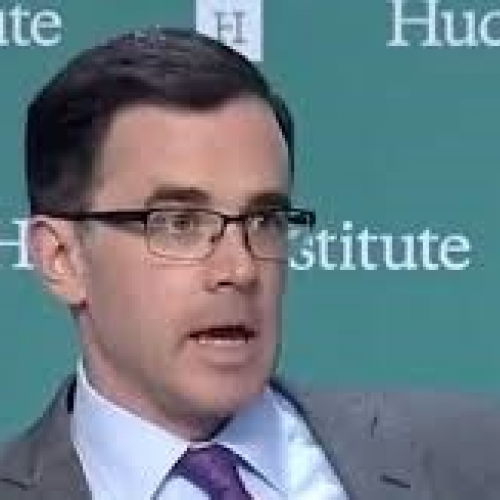
Session: Weapons Modernization Update and Concurrent Developments at Home and Abroad
Tim Morrison is a senior fellow at Hudson Institute, specializing in Asia-Pacific security, missile defense, nuclear deterrent modernization, and arms control.
Most recently, Mr. Morrison was deputy assistant to the president for national security in the Trump administration. He served as senior director on the National Security Council for European Affairs, where he was responsible for coordinating U.S. government policy for 52 countries and three multilateral organizations. Prior to that post, he was senior director for counterproliferation and biodefense, where he coordinated policy on arms control, North Korean and Iranian weapons of mass destruction programs, export controls and technology transfers, and implementation of the Trump administration’s Conventional Arms Transfer policy.
For 17 years, Mr. Morrison worked in a variety of roles on Capitol Hill. From 2011 through July 2018, he served on the House Armed Services Committee staff, initially as staff director of the Subcommittee on Strategic Forces and ultimately as policy director of the Committee. As policy director, Mr. Morrison led implementation of Chairman Mac Thornberry’s priorities, including overseeing implementation of the Trump administration’s National Security Strategy and National Defense Strategy, prohibition of Chinese Communist Party-linked information technology and video surveillance technology, and House-passage of the Foreign Investment Risk Review Modernization Act (FIRRMA) and the Export Control Reform Act (ECRA) as part of the Fiscal Year 2019 National Defense Authorization Act.
From 2007 until 2011, Mr. Morrison was the national security advisor to U.S. Senator Jon Kyl (AZ), the Senate Republican Whip, where he assisted in coordinating national security policy and strategy for the Senate Republican Conference and led policy initiatives on nuclear weapons, arms control, export controls, and economic sanctions.
Mr. Morrison has a B.A. in political science and history from the University of Minnesota. He also has a J.D. from the George Washington University Law School. He is an intelligence officer in the United States Navy Reserve, serving since 2011.
Nicole Nelson-Jean
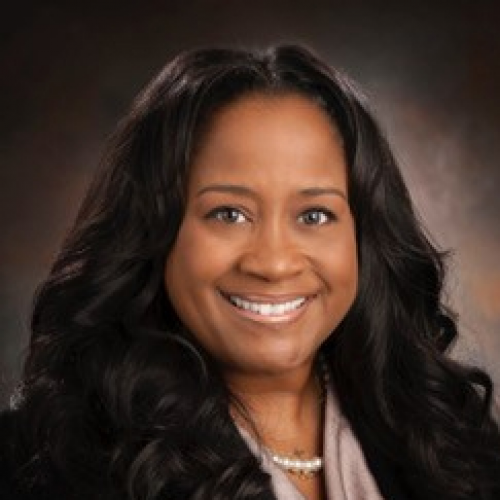
Session: Support the Mission: NNSA Administrator’s Governance and Management Framework
Nicole Nelson-Jean is the Manager of NNSA's Savannah River Field Office, where she oversees a Federal team and provides oversight for the management, security, quality assurance, environment, health, safety, nonproliferation, and national security missions for the Savannah River Site. Previously, she was Manager of the Livermore Field Office, where she managed a similar portfolio for Lawrence Livermore National Laboratory. She is a member of the Senior Executive Service.
Ms. Nelson-Jean's years of experience includes environmental management, infrastructure, nuclear safety, nuclear security, nuclear energy, nonproliferation, business and contract management. She began her career at Los Alamos National Laboratory in the Office of Environmental Management and then moved to the Office of Nonproliferation and International Technology, where she supplied technical analysis regarding foreign civil, military, and commercial technological advances in countries of a proliferation concern.
Ms. Nelson-Jean earned a bachelor's degree in political science from Grambling State University, a master's degree in liberal arts from St. John’s College and a master's degree in strategic security studies from National Defense University. She also completed the Leadership for a Democratic Society Program at the Federal Executive Institute.
L. David Olson
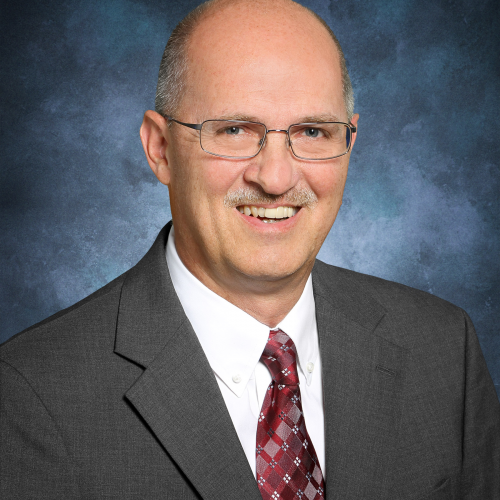
Session: Strategic Materials Missions
David Olson is the vice president of Operations for Fluor Government Group’s Environmental and Nuclear (E&N) business line. In this role, he is responsible for oversight of the Department of Energy Environmental Management (DOE-EM) projects in the E&N portfolio including Savannah River Nuclear Solutions, Paducah and Portsmouth with planned additions of Idaho Clean-up and DUF6 pending the outcome of ongoing competitions.
Prior to coming to Fluor in October 2015, Olson served as president and project manager for Washington River Protection Solutions (WRPS), where he led the remediation of radioactive and hazardous waste tanks at the DOE’s Hanford site in Washington state. Olson has more than 34 years of experience in government nuclear facilities operations and projects.
Prior to joining WRPS, he served as president and project manager of Savannah River Remediation at the Savannah River Site (SRS) in South Carolina. Previously, Olson was deputy project manager and operations manager at SRR. In that position, he provided operational leadership for the liquid waste contract. Olson’s responsibilities included strictly maintaining all safety and environmental regulations, assuring safe operation of all facilities developing strategic execution plans that maintained all liquid waste facilities, and meeting DOE and other stakeholder project objectives. He also held the position of interim president and executive vice president of Washington Savannah River Company. Before that, Olson served as Liquid Waste Operations manager where he was responsible for successfully executing and managing operational, project, construction and other business functions in liquid waste and associated areas.
Olson has a BS in Chemical Engineering and Masters and Doctorate degrees in Business. He is also a certified Project Management Professional (PMP) through PMI. He received the 2004 DOE Secretary’s Excellence in Acquisition Award. He was also recognized as the 2008 Executive of the Year by the Savannah River Chapter of the National Management Association.
Elizabeth M. Porter
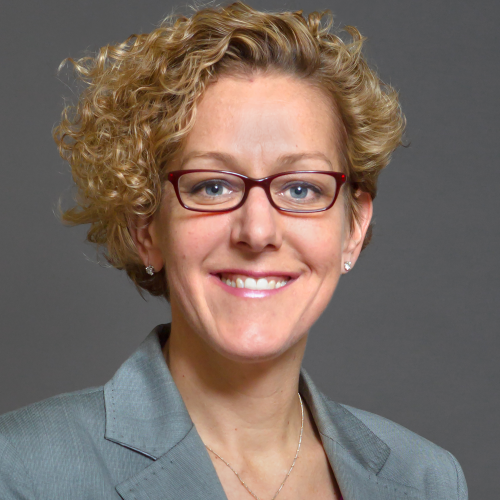
Session: Support the Mission: NNSA Administrator’s Governance and Management Framework
Elizabeth (Liz) Porter currently serves as Senior Vice President, Federal Energy, Environment, & Commerce for Leidos Civil, where she oversees an organization that provides world class energy infrastructure support, environmental science, information technology and engineering solutions/services to all our federal, state and local clients including the Department of Energy, the Environmental Protection Agency, the Nuclear Regulatory Commission, the General Services Administration and the Internal Revenue Service.
Previously, she served as the Director of Energy Initiatives, Corporate Engineering & Technology (CE&T) at Lockheed Martin. In that role, she was responsible for developing and executing the strategy for the energy campaign working closely with business areas and corporate strategy and business development to leverage capabilities and grow the business in the expanding energy market from February 2009 to April 2012. Selected by the Department of Energy and MIT as first-ever recipient of the U.S. Clean Energy Education and Empowerment (C3E) Initiative Award (Corporate Implementation) in 2012.
Ms. Porter graduated from Villanova University with a bachelor’s degree in Electrical Engineering and from the University of Colorado with a master’s degree in Business Administration. Ms. Porter’s serves on the Industrial Advisory Board to the Engineering Department at Villanova University, and on the Energy Facility Contractors Operating Group board.
Michelle Reichert
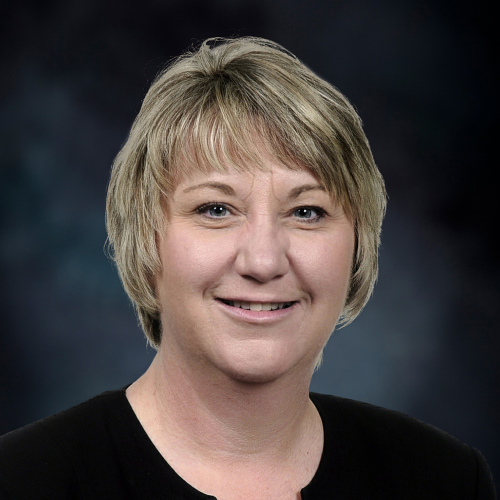
Session: Support the Mission: NNSA Administrator’s Governance and Management Framework
Michelle Reichert serves as the chief operating officer for Consolidated Nuclear Security, LLC, the management and operating contractor for the Pantex Plant in Amarillo, Texas, and the Y-12 National Security Complex in Oak Ridge, Tennessee. She is responsible for coordination of integration activities between the two sites as well as enterprise-wide communications with the NNSA, employees and other key stakeholders.
Previously, Reichert was the site manager at the Pantex Plant, where she oversaw daily operations to sustain a safe, secure and effective nuclear deterrent. She has 28 years of experience in Department of Energy conduct of operations environments. Her responsibilities have included deputy project management and senior leadership in environment, safety and health; safeguards and security; emergency management; waste management; transportation; and manufacturing operations.
At Pantex as deputy general manager, Reichert provided leadership in all aspects of plant operations involving nuclear weapons, plutonium pit storage, high explosives, engineering, safety, security, emergency management, facilities management, quality, environmental protection and general administration.
At Y-12, Reichert served as vice president of environment, safety and health. She was the interpretive authority for environment, safety and health; waste operations; human performance improvement; behavior based safety; and integrated safety management.
Also at Y-12, she managed enriched uranium metalworking, production and manufacturing compliance and served as the program manager for modernization and as the operations manager of analytical chemistry. Reichert holds a B.S. in biology/chemistry from Viterbo University in Wisconsin and an M.S. in radiological engineering/health physics from the University of Florida.
John Ricciardelli
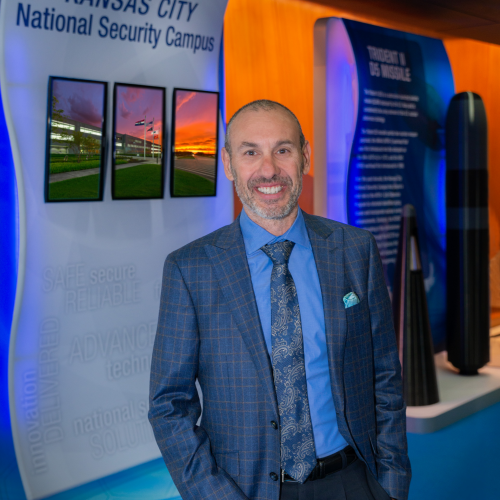
Session: Perspectives on NNSA Site Operations
John Ricciardelli is President of Honeywell Federal Manufacturing & Technologies (FM&T), which manages and operates the Department of Energy’s Kansas City National Security Campus. With more than 4,500 employees in Kansas City and Albuquerque, the Kansas City National Security Campus provides diverse engineering, manufacturing and secure sourcing services for national security.
In this position, Ricciardelli is responsible applying best-in-class commercial standards in managing operations and delivering outstanding mission results with a $1.1B annual operations budget.
Prior to this position, Ricciardelli served as the Honeywell Program Director for the Airbus A350XWB Program where he was responsible for leadership of the Extended Mechanical and Air Management Systems development program. He was directly responsible for support of strategic business initiatives including proposal development, strategic planning support, customer support, and product development within this platform program.
A 32-yr veteran of Aerospace industry, Ricciardelli also served as Honeywell Director, Military Systems Engineering and Applications in addition to leadership positions for the AS900/HTF7000 engine programs and various Program Management and Customer & Product Support roles. He also served as Vice President, ownership experience and product support for Eclipse Aviation in Albuquerque, NM. as well as Executive Director, for Bell Helicopter in Fort Worth, Texas and Mirabel, Canada.
Ricciardelli has a Bachelor’s degree in Mechanical Engineering from Pennsylvania State University (PSU) and an Executive Master’s in Business Administration (EMBA) degree from Texas Christian University (TCU). He also has a Certificate of Global Leadership from Thunderbird University and is Executive Black Belt certified.
Christopher J. Roscetti
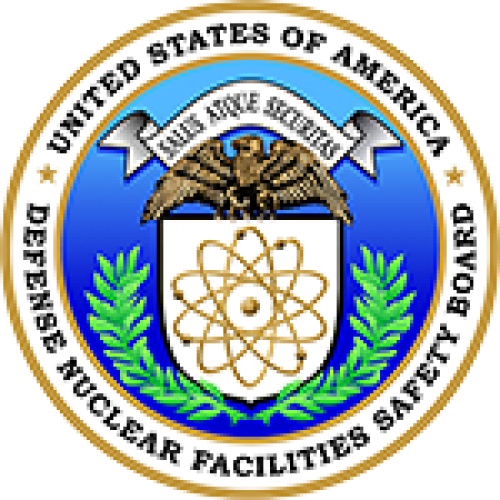
Session: Updates from the Defense Nuclear Facilities Safety Board (DNFSB)
Christopher Roscetti serves as the Technical Director at the Defense Nuclear Facilities Safety Board (DNFSB), a position he has held since June 2018. In this role, he is responsible for approximately 65 scientists and engineers and developing the staff work for the Board in performing the DNFSB mission. The mission of the DNFSB and of the Board in particular is to provide independent analysis, advice, and recommendations to the Secretary of Energy to inform the Secretary in providing adequate protection of public health and safety at defense nuclear facilities.
As a member of the Senior Executive Service, Mr. Roscetti has held several positions within the Agency. Prior to his appointment as the Technical Director at the DNFSB, he served as the Deputy General Manager, the Associate Technical Director for Nuclear Programs and Analysis and the Associate Technical Director for Engineering Performance. Prior to joining the SES, Mr. Roscetti worked on the technical staff to evaluate safety programs and equipment at DOE’s defense nuclear facilities including conduct of operations programs; training programs; and facility safety system design, functionality, and maintenance.
Prior to joining the DNFSB, Mr. Roscetti served in the United States Navy as a submarine officer onboard the USS LOUISIANA (SSBN 743)(Gold). He also worked as an Action Officer for Naval District Washington in its role as the naval component to the Joint Force Headquarters, National Capital Region.
Mr. Roscetti earned a Master of Engineering degree in Reliability Engineering from the A. James Clark School of Engineering at the University of Maryland, a Master of Business Administration degree from the Robert H. Smith School of Business at the University of Maryland, and a Bachelor of Science degree in Systems Engineering from the United States Naval Academy.
Chris Schneidmiller
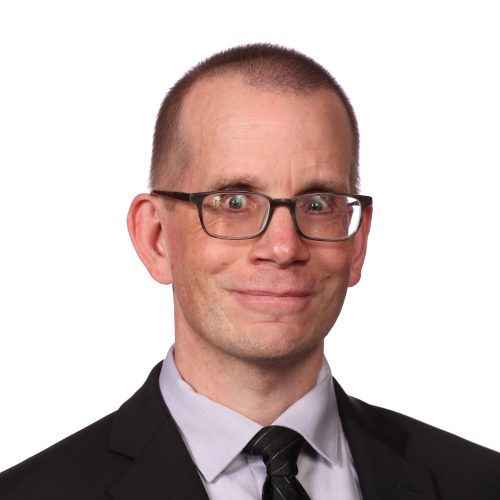
Session: Updates from the Defense Nuclear Facilities Safety Board (DNFSB)
Chris Schneidmiller is Editor-in-Chief of the ExchangeMonitor Publications & Forums, encompassing the daily Weapons Complex Monitor Morning Brief and three weekly newsletters: Weapons Complex Monitor, RadWaste Monitor, and Nuclear Security & Deterrence Monitor. He has more than two decades of experience as a reporter and editor for news publications across the country, most recently as editor of Global Security Newswire, a Washington, D.C.-based online publication that covered international security and WMD proliferation issues.
Chris received his bachelor’s in journalism from the University of Texas in Austin, TX, and started his career as a reporter in Roswell, NM.
The Honorable Alan R. Shaffer
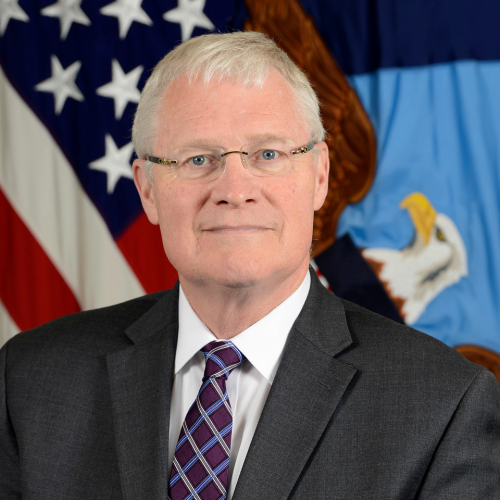
Session: Morning Plenary Session
Mr. Alan R. Shaffer currently serves as the Deputy Under Secretary of Defense for Acquisition and Sustainment (A&S). Senate confirmed in January 2019, he is responsible to the Under Secretary of Defense for all matters pertaining to acquisition; contract administration; logistics and material readiness; installations and environment; operational energy; chemical, biological, and nuclear weapons; the acquisition workforce; and the defense industrial base.
From 2015 to 2018, Mr. Shaffer served as the Director, NATO Collaboration Support Office in Neuilly-sur-Seine, France. In this role, he was responsible for coordinating and synchronizing the Science and Technology (S&T) collaboration between NATO member and partner Nations, comprising a network of about 5,000 scientists.
Previous to his role at NATO, Mr. Shaffer served as the Principal Deputy Assistant Secretary of Defense for Research and Engineering (ASD(R&E)) from 2007-2015. In this position, Mr. Shaffer was responsible for formulating, planning and reviewing the DoD Research, Development, Test, and Evaluation (RDT&E) programs, plans, strategy, priorities, and execution of the DoD RDT&E budget that totals roughly $25 billion per year. He has also served twice as the Acting Assistant Secretary of Defense for Research and Engineering from 2007-2009 and 2012-2015.
Additionally, in 2009, he was appointed as the first Director, Operational Energy, Plans and Programs (Acting). Mr. Shaffer has also served as the Executive Director for several senior DoD Task Forces, including review of all research, acquisition and test activities during the 2005 Base Realignment and Closure. In 2007, he was the Executive Director for the DoD Energy Security Task Force and, from 2007-2012, he served as the Executive Director of the Mine Resistant Ambush Protection (MRAP) Task Force, where he was responsible for oversight and fielding 27,000 MRAPs.
Before entering the federal government, Mr. Shaffer served a 24-year United States Air Force career in command, weather, intelligence and acquisition oversight with assignments in Utah, California, Ohio, Honduras, Germany, Virginia and Nebraska.
His career included deployment to Honduras in the mid-1980s and direct support of the United States Army 3rd Armored Division in Hanau, Germany. During Operation DESERT STORM, he was responsible for deployment of the 500-person theater weather force. Upon retirement from the Air Force in 2000, Mr. Shaffer was appointed to the Senior Executive Service; in 2001, he assumed the position as Director, Plans and Programs, Defense Research and Engineering.
Mr. Shaffer earned a Bachelor of Science in Mathematics from the University of Vermont in 1976, a second Bachelor of Science in Meteorology from the University of Utah, a Master of Science in Meteorology from the Naval Postgraduate School, and a Master of Science in National Resource Strategy from the Industrial College of the Armed Forces. He was awarded the Meritorious Executive Presidential Rank Award in 2004, the Department of Defense Distinguished Civilian Service Award, and the Distinguished Executive Presidential Rank Award in 2007 and 2015.
Morgan Smith

Session: Perspectives on NNSA Site Operations
Morgan Smith is the president and the chief executive officer of Consolidated Nuclear Security, LLC, which is responsible for the management and operation of the Pantex Plant in Amarillo, Texas, and the Y-12 National Security Complex in Oak Ridge, Tennessee. A Bechtel executive, Smith joined CNS in 2014 to serve as the CNS chief operating officer and manage the operations of both sites.
Smith has more than 36 years of prior technical and managerial leadership experience within the Naval Nuclear Propulsion Program. He performed significant roles in planning and implementing the consolidation of the Bettis Atomic Power Laboratory and Knolls Atomic Power Laboratory into a single organization and, in 2014, applied that experience to initiate the consolidation of Pantex and Y-12 under one U.S. Department of Energy contract.
Smith’s career has been focused on leading disciplined nuclear operations and improving performance in high-risk environments. His technical background includes design; development; and fabrication of reactor control drive mechanisms, steam generators and refueling equipment.
Smith holds a B.S. in civil engineering from The Pennsylvania State University and has completed various project management and leadership development programs with Westinghouse, Bechtel and the University of Michigan.
Michael A. Thompson
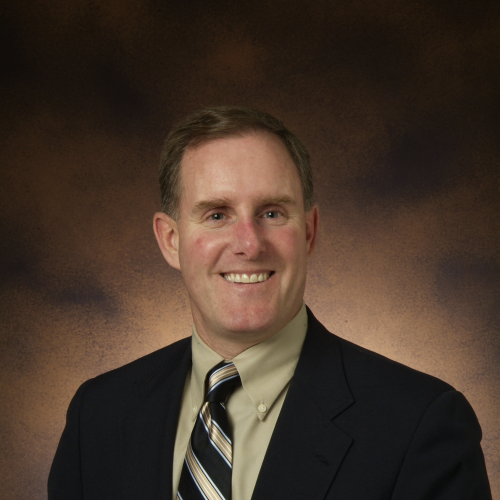
Session: Strategic Materials Missions
As the Assistant Deputy Administrator for Production Modernization Programs, Mr. Thompson ensures the efficacy of the nuclear weapons stockpile by planning, executing, and monitoring the execution of all Production Modernization Programs that support the nuclear weapon stockpile. In this role, he is responsible for maintaining and improving the Nation’s capability to produce primaries, secondaries, and non-nuclear components.
Prior to this assignment, Mr. Thompson served as the Assistant Deputy Administrator for Major Modernization Programs, responsible for major weapon system acquisitions, including weapon life extension programs and modernization of strategic materials capabilities.
Mr. Thompson has led several Defense Programs offices, with responsibility for facility infrastructure and construction, budget formulation, and technical program direction. As a program manager, he held positions with increasing responsibility for facility operations and construction at Defense Programs sites. As a senior safety manager, Mr. Thompson led multiple teams to resolve technical, budgetary, and regulatory issues impacting safe facility operations. Prior to federal service, Mr. Thompson was a Marketing Representative for International Business Machines serving major systems clients in Washington, DC.
Mr. Thompson is a retired Captain in the Naval Reserve, with experience leading crisis action teams in support of national exercises and real-world responses to terrorist attacks and disaster relief operations. He also served with the Navy Inspector General, conducting resource management assessments at over 30 commands worldwide. While on active duty, he qualified as a naval nuclear engineer and surface warfare officer.
Mr. Thompson is a graduate of the U.S. Naval Academy, with Masters degrees in Environmental Engineering from the Johns Hopkins University and National Security Strategy from the National War College.
Leonor Tomero

Session: Budget and Policy Update
Donald G. Trost
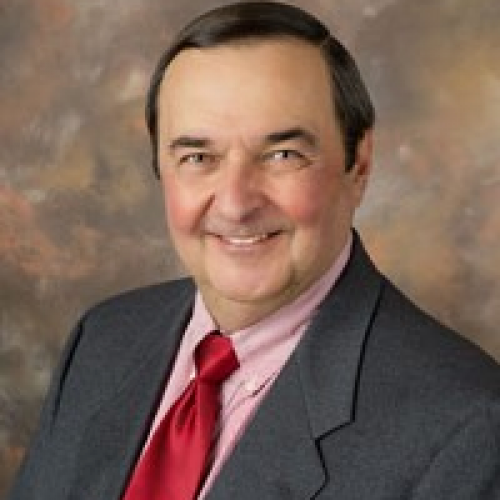
Session: Opening Remarks, introduction of the other speakers
In 2004 Don joined TechSource as the Executive Vice President responsible for operations in the Washington, DC metropolitan area. In addition to his operations responsibility, Don has been the catalyst in moving TechSource from a regional business to a national leader. His visionary skills, leadership, and reputation have made TechSource an indispensable national resource. Don has over 40 years of experience in program and project management of high-technology programs, nuclear facilities management, and federal real estate management. Don currently provides advice and direction to the National Nuclear Security Administration and to the DOE’s Nuclear Energy and Strategic Petroleum Reserve programs. As the former Director of Real Estate for the DOE and as the Former Deputy Director for the Office of Worker and Community Transition, Office of the Under Secretary of Energy, Don has led numerous task forces and quality groups developing modern practices in real estate, business process re-engineering, and quality management. Don is also a highly skilled negotiator and facilitator who has been involved in strategic planning for leaders in numerous Government organizations including DOE, DOD, DOI, the House of Representatives, and the Strategic Petroleum Reserve. Don grew up in Sacramento, CA; he attended the University of California, Berkeley, where he received a B.A. in political science. Don has served in and been a member of numerous organizations including the Federal Real Property Association (serving as President); the Department of Justice Land Acquisition Conference; the Cabinet Council on Management and Administration; and the Association of Federal Appraisers. He is also a very active member of the Civil War Trust.
David Vennergrund

Session: Artificial Intelligence – The Science of Tomorrow is Happening Today
Dave Vennergrund is a senior director and Distinguished Technologist at GDIT. Dave has more than twenty-five years of Artificial Intelligence, data analytics, data science, IT management, and R&D experience. He has led dozens of successful data mining, Big Data, AI, and Machine Learning efforts at Intelligence, Defense, and Federal agencies. Solutions include Data Lakes for Navy, predictive analytics at EPA, HUD and DOI; improper payment prevention at IRS, USDA, CMS, VA, DFAS, and OPM. Dave has expertise in data analysis, predictive modeling, Big Data, Cloud Analytics (AWS, Azure, Google) and the deployment of analytic solutions in mission critical settings. Dave has built data mining, business intelligence, and business analytics Centers of Excellence, Special Interest Groups, and Innovation Centers. Dave is an industry expert in AI/ML, predictive analytics, fraud detection, and data science.
Charles P. Verdon, PhD
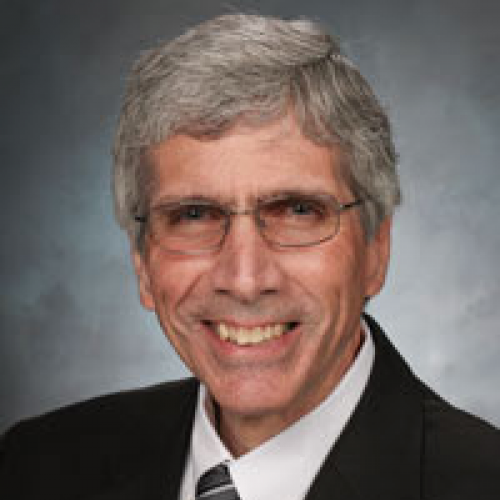
Session: The Future—Challenges Today and into the Future
Dr. Charles P. Verdon is NNSA’s Deputy Administrator for Defense Programs. He leads the team that directs the Stockpile Stewardship Program, which is responsible for maintaining the safety, security, and reliability of the Nation’s nuclear weapons stockpile.
Confirmed by the Senate on Sept. 18, 2018, Dr. Verdon was sworn in on Oct. 9, 2018.
Prior to joining NNSA, he was the Principal Associate Director within the Weapons and Complex Integration Directorate at Lawrence Livermore National Laboratory. In this role, he was responsible for the management and coordination of all of the lab’s weapons program activities.
Before that, Dr. Verdon served as the Directorate’s Principal Deputy Principal Associate Director, Program Director for the Secondary Nuclear Design Program, and the AX-Division Leader. In these roles, he worked to maintain national and global security by maintaining scientific and technical leadership in all aspects of thermonuclear weapon physics design and operation. He was also responsible for the management of the scientific grand challenge effort of achieving ignition at the National Ignition Facility.
Dr. Verdon was selected as a Fellow of the American Physical Society in 1997. In addition, in 1995 the society awarded him the Excellence in Plasma Physics Research Award for outstanding theoretical work, computational design and analysis, and experimental work leading to quantitative and predictive understanding of aspects of high-energy density plasmas.
Dr. Verdon holds a doctorate in nuclear engineering from the University of Arizona.
Robert Webster, PhD
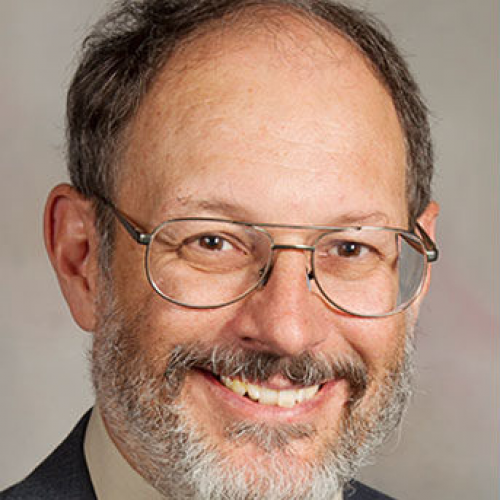
Session: NNSA Weapons Update
In this role, Bob has direct line management responsibility for planning, coordinating, and integrating the Weapons programs by overseeing the Associate Level Directorates of Weapons Engineering, Weapons Physics, and Weapons Production.
Bob is a 29-year veteran of the Weapons programs and a recognized leader in nuclear weapons stockpile stewardship.
He began his Laboratory career as a graduate student at Los Alamos in 1984, became a consultant, then a technical staff member, and advanced through multiple national security positions to his present position.
During Bob’s tenure, the Weapons programs have consistently met or exceeded overall performance expectations and made significant contributions to Los Alamos’s and the Department of Energy’s National Nuclear Security Administration’s missions—a compelling record of achievements that he brings to the many challenges of serving as the Deputy Director, Weapons.
Bob received a Ph.D. and M.S. in Nuclear Engineering from Purdue University, and a M.S. in Electrical Engineering, an M.S. in Applied Physics, and a B.S. in Electrical Engineering from Case Western Reserve University.
Bryan K. Wilkes
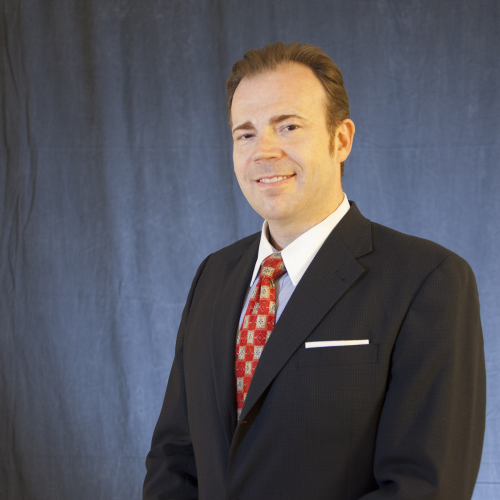
Session: Chinese Strategic Nuclear Force Posture: Current and 2035 Forecast
With an extensive background in public policy, communications and government affairs, Bryan has over twenty five years combined government, corporate and nonprofit operations experience. His professional career has focused on national security, nuclear and nonproliferation issues, and international affairs, serving in senior roles at the U.S. Department of Energy’s National Nuclear Security Administration, the Nuclear Threat Initiative, and for members of the U.S. Senate and House of Representatives.
Bryan has received numerous awards and commendations, including the National Nuclear Security Administration’s second highest award, the NNSA Silver Medal. He earned a Master’s Degree in National Security and Strategic Studies from the Naval War College, and is an adjunct professor at the George Washington University’s Elliott School for International Affairs.
